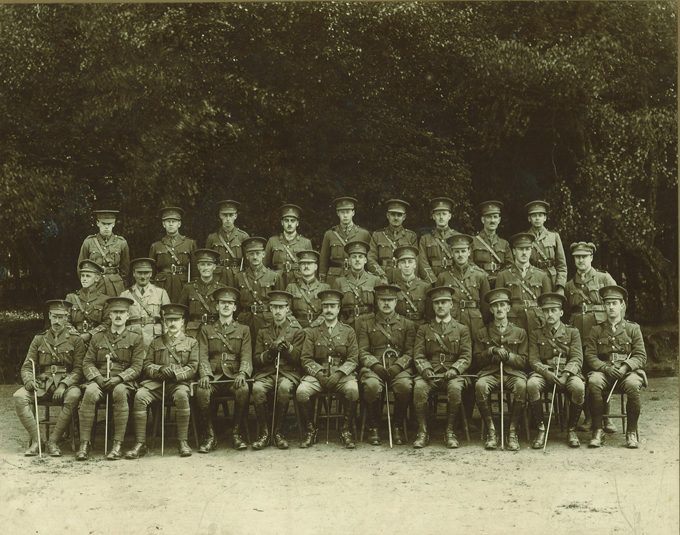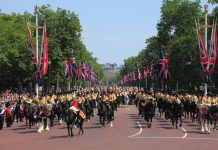Letters revealed for the first time at Nymans detail the camaraderie between soldiers and a colonel whose German ancestry saw him debarred from active service in WWI.

Personal accounts of life on the frontline and at home sent to a British colonel with German ancestry during the First World War will be on display for the first time at Nymans National Trust Garden this summer.
Colonel Leonard Messel of Nymans in West Sussex was debarred from active service on account of his German ancestry so devoted his time to training battalions of the Royal East Kent Regiment, many of whom wrote to him throughout the war.
To mark the centenary of the First World War, Nymans is displaying selected contents of some of the 491 letters Colonel Messel received, alongside audio recordings. Visitors will be able to discover the impact of the war on other people within the Nymans circle, including Leonard’s father Ludwig, who is said to have died broken-hearted by the conflict between the two nations he loved.
The openness of the soldiers’ letters illustrates the close bond that existed between the Colonel and his troops, who were of very different social backgrounds.
Victoria Messel, Leonard’s granddaughter, remembers: “Amazingly, I found this book of letters when turning out the house after the death of my aunt in 1992. It was wonderful – one of the most precious things to come out of the house. You can hear voices from the past showing their affection for Lennie.”
For the soldiers of the Royal East Kent Regiment, known as the Buffs, corresponding with Colonel Messel would have been one of the few opportunities to put in writing their personal experiences of life in the trenches; something that many of them had hidden from loved ones back home:
One letter read: “You will guess by the address that I have been hit again but it’s not very much. The same night poor Sherren was killed instantaneously. We all miss him – he was splendid in the line. Far worse than the shelling, the machine gun and this new gas (which leaves big blisters) was the mud. It was indescribable. Several of my chaps went in up to their armpits and I am afraid quite a number never got out. Still – the stunt went splendidly.”
The Colonel continued to provide comfort by writing personal notes to those whose sons were never to return, an act obviously appreciated by families of the dead.
“Dear Col Messel, I had no idea until after his death what a favourite he (Harold) seems to have been with everyone; from the High Commis of New Zealand in whose employ he was, and all heads of departments, down to small shopkeepers in our neighbourhood who have spoken to me in the same strain. He was so awfully keen too, to get to the front, and to do his ‘bit’.
“Again thanking you for your kind sympathy, and high opinion of our dear laddie (he had not quite reached his 20th birthday).”
4.9.17, Geo: Hardey Mason, Modard, Queen’s Road, Wallington.
The letters also highlight the Colonel’s understanding of the divide that existed between his own privileged lifestyle and the desperate personal circumstances of some of his soldiers. Other letters bring home the tragic nature of the relationship that clearly existed (and which sometimes bordered on camaraderie) between British and German troops:
“An attack was arranged for at two o’clock the second night but we were delayed until 2.30am. After getting about 250 yards we had to retire, the Germans getting to know that an attack was going to take place, ‘and shouting to us we were half an hour late’.”
“The most interesting work perhaps is going out to listen between the trenches; they are usually singing…”
July 16 1915, Sergt Mitchell, G.H, B Coy, 8th Batt, A&S Highlanders, 51st Division, British Expeditionary Force.
Nymans’ house manager, Rebecca Graham, adds: “Leonard had copies of the letters made into a book which he is said to have treasured, and which thankfully survived a huge fire at Nymans in 1947. We can only imagine what it must have been like for him, having to stay behind while the men he had trained gave their lives for their country. He must have written hundreds of letters to them, and to their families, which obviously gave them great solace. This is their story, and this is our tribute to them all.”
The Great War – Stories of a German Family in England runs from 14 June to 31 August.
|
|||||||||||||||||








 © 2024
© 2024